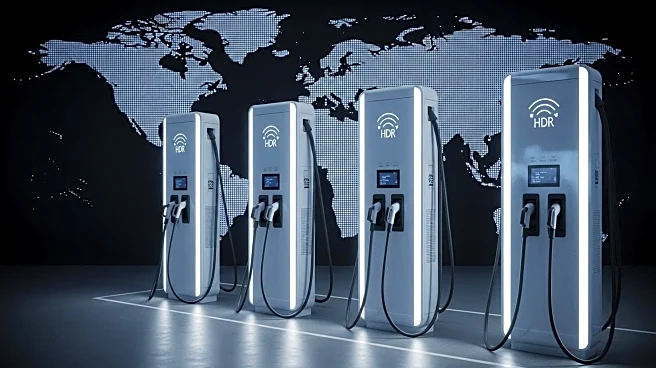What is the story about?
What's Happening?
China's electric vehicle (EV) industry, once buoyed by government incentives, is now facing intense price wars that threaten the survival of many domestic brands. The sector, which saw the rise of global leaders like BYD, has been plagued by overcapacity and fierce competition, leading to the collapse of numerous companies. The Chinese government has historically supported EV makers with subsidies, contributing to the country's status as the largest EV market globally. However, relentless price wars have strained profits and led to 'disorderly' competition, affecting not only the EV sector but also other industries like solar panels and e-commerce. Despite these challenges, Chinese EV brands such as BYD, Chery, Geely, and Changan are expanding globally, with exports reaching nearly 6 million vehicles last year. This expansion has prompted international pushback, including tariffs and restrictions from countries like Europe, Mexico, and Canada.
Why It's Important?
The ongoing price wars in China's EV industry have significant implications for global markets and the domestic economy. As Chinese brands expand internationally, they face resistance from foreign governments concerned about market saturation and competitive pricing. Domestically, the price wars threaten the stability of the industry, potentially leading to job losses and economic strain. The Chinese government is attempting to address these issues by implementing measures to curb excessive competition and stabilize the economy. However, experts remain skeptical about the effectiveness of these measures, given the complexity of the industry's challenges. The situation underscores the delicate balance between fostering innovation and maintaining economic stability, with potential consequences for employment and social stability in China.
What's Next?
The Chinese government is likely to continue its efforts to stabilize the EV industry by reducing overcapacity and curbing price wars. This may involve further regulatory measures and adjustments to subsidies. Industry experts predict that the price wars will persist until a significant consolidation occurs, leaving only a few dominant players in the market. This process could take several years, with potential impacts on employment and economic growth. Internationally, Chinese EV makers will need to navigate tariffs and restrictions as they expand their global presence. The outcome of these efforts will shape the future of China's EV industry and its role in the global automotive market.
Beyond the Headlines
The intense competition in China's EV industry highlights broader issues of 'involution,' where excessive competition yields little progress. This phenomenon is not limited to the EV sector but affects various industries in China, posing challenges to sustainable growth and innovation. The government's focus on curbing 'involution-style' competition reflects concerns about long-term economic stability and the need for structural reforms. The situation also raises questions about the balance between state intervention and market forces in shaping industry dynamics.















